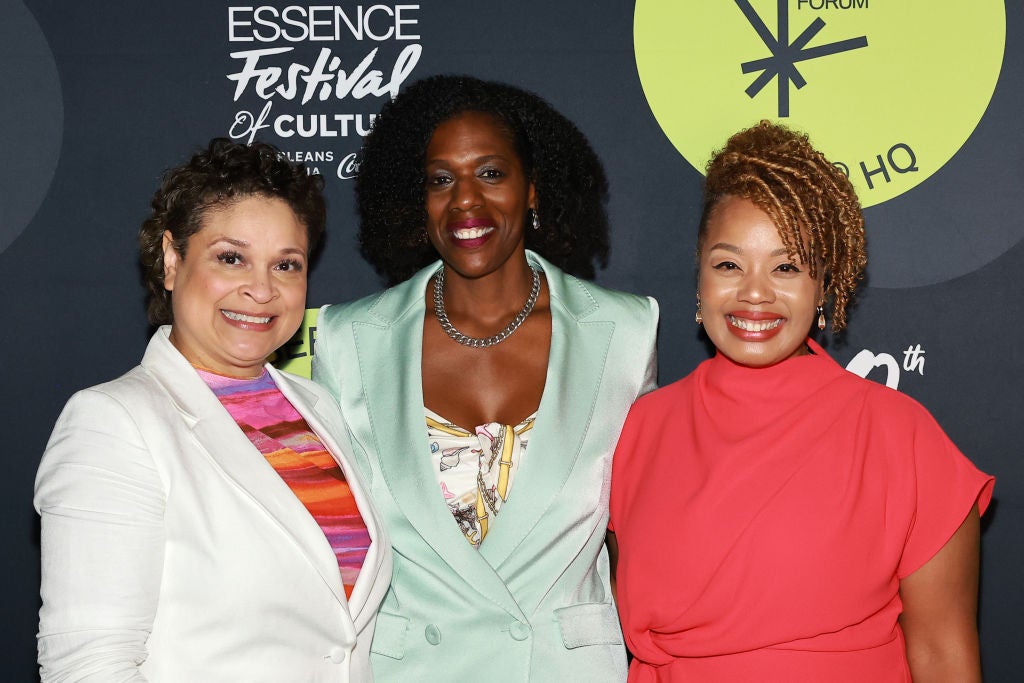
How many of us can relate to not feeling heard or seen by a healthcare provider? This pressing issue was the focus of the conversation titled “Centering Black Patients and Stories in Health Care” the Global Black Economic Forum during the ESSENCE Festival Of Culture 2024. The discussion highlighted the disparities and challenges Black patients face within the healthcare system, emphasizing the urgent need for more inclusive and compassionate care.
Dr. Pamela Allen, Associate Professor and Chair at the University of Oklahoma; Dr. Ashanda Saint John, Chair of Obstetrics and Gynecology at Health Alliance Hospital; and Kelly Copes-Anderson, Global Head of Diversity, Equity, and Inclusion (DEI) at Eli Lilly and Company, shared the work they do to ensure that Black communities can access care that considers our unique needs.

DEI is central to this conversation because when we have people who look like us as providers in hospitals and teaching in medical schools, we don’t have to explain our hair, skin, and aspects of our culture that others may not understand.
Copes-Anderson shared a story about her grandfather being challenged by a doctor who didn’t understand his pain needs. She had to translate what her grandfather was feeling to his doctor, and yet the doctor was frustrated. The experience opened a greater conversation about the importance of doctors listening to their patients and understanding the factors connected to their access to care.
Dr. Allen asserted that they have to listen to patients to understand why they didn’t get their meds instead of dismissing them as non-compliant. “Providers have to be culturally aware, culturally humble in the way we ask questions to be able to understand their needs and fulfill them.” Furthermore, Dr. Saint John pushed back against a harmful, centuries-long narrative, “Black skin is not thicker; we feel pain like anyone else. Always remember that if you need pain meds, they should provide that for you.”
Dr. Allen, a member of the Skin of Color Society (SOCS), a dermatologic organization dedicated to achieving health equity in patient care through “research, education, mentorship, and advocacy,” Expressed her unwavering commitment to increasing diversity and inclusion in the dermatology field.
She explained how critical it is to have Black doctors who understand the nuances of skin tone, especially how certain conditions show up on patients of different skin tones. Conditions such as alopecia, eczema, and acne show up differently in darker-skinned patients than in fair-skinned ones. Still, there needs to be more education in medical schools to address skin color. Dr. Allen also noted her commitment to educating her providers, residents and students “so they are providers for all people.”
Diversity in clinical trials is essential, even with widespread medical mistrust in Black communities. Copes-Anderson shared how representation in clinical trials ensures data and information to ensure that medicines work for all people. As the conversation turned to how providers and the medical community can build trust, the panel agreed on the power of partnership.
Dr. Allen and Copes-Anderson are actively engaging with community leaders, organizations and businesses like barbershops, beauty salons, and aestheticians to build relationships and bring healthcare conversations to the people about issues such as prostate health and colonoscopies. “There’s no better way to build trust than to ask people what they need and then to show up and give it to them,” said Copes-Anderson. “Then we are in a position to co-create solutions that make sense.”







